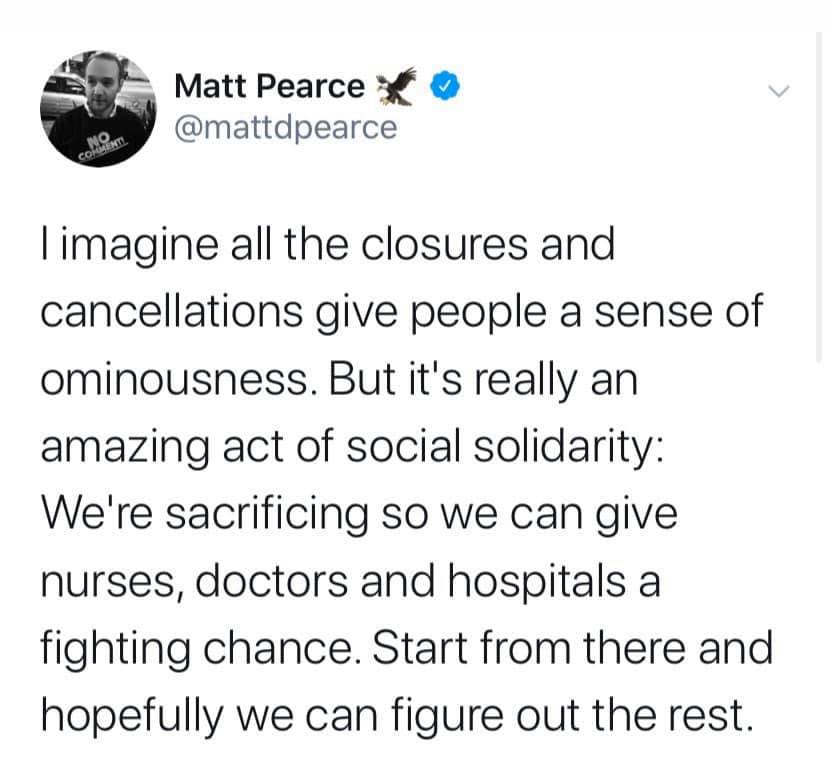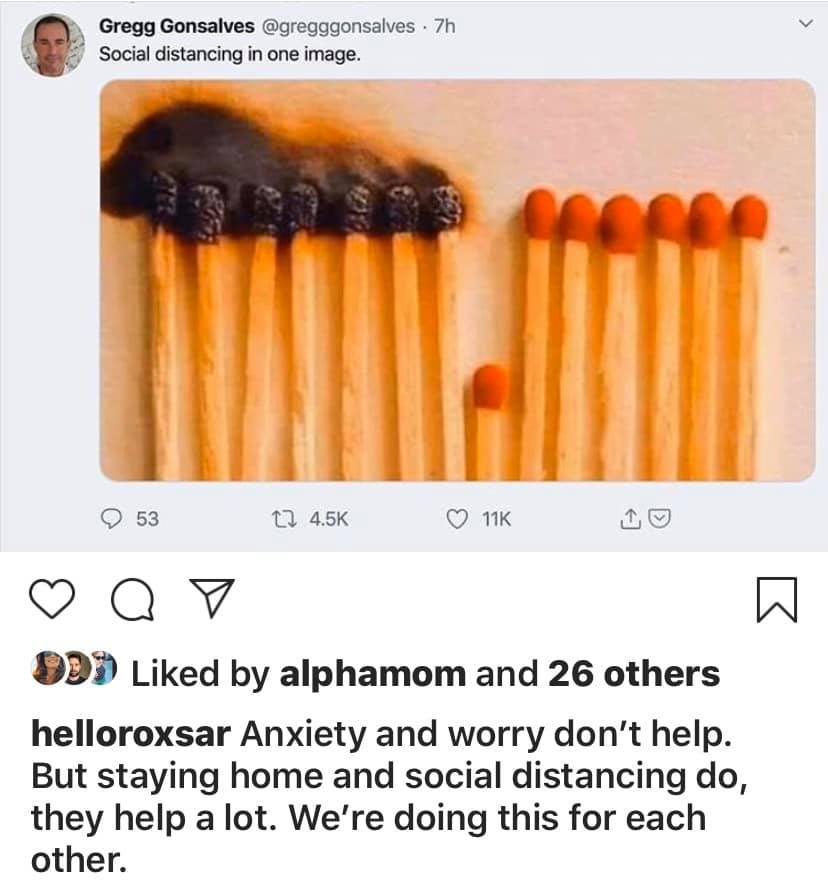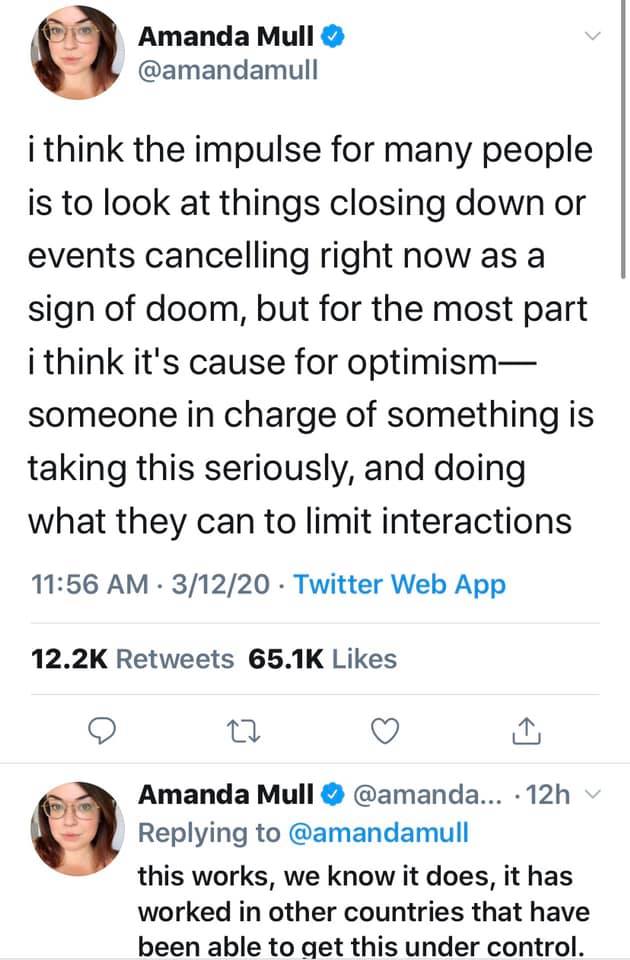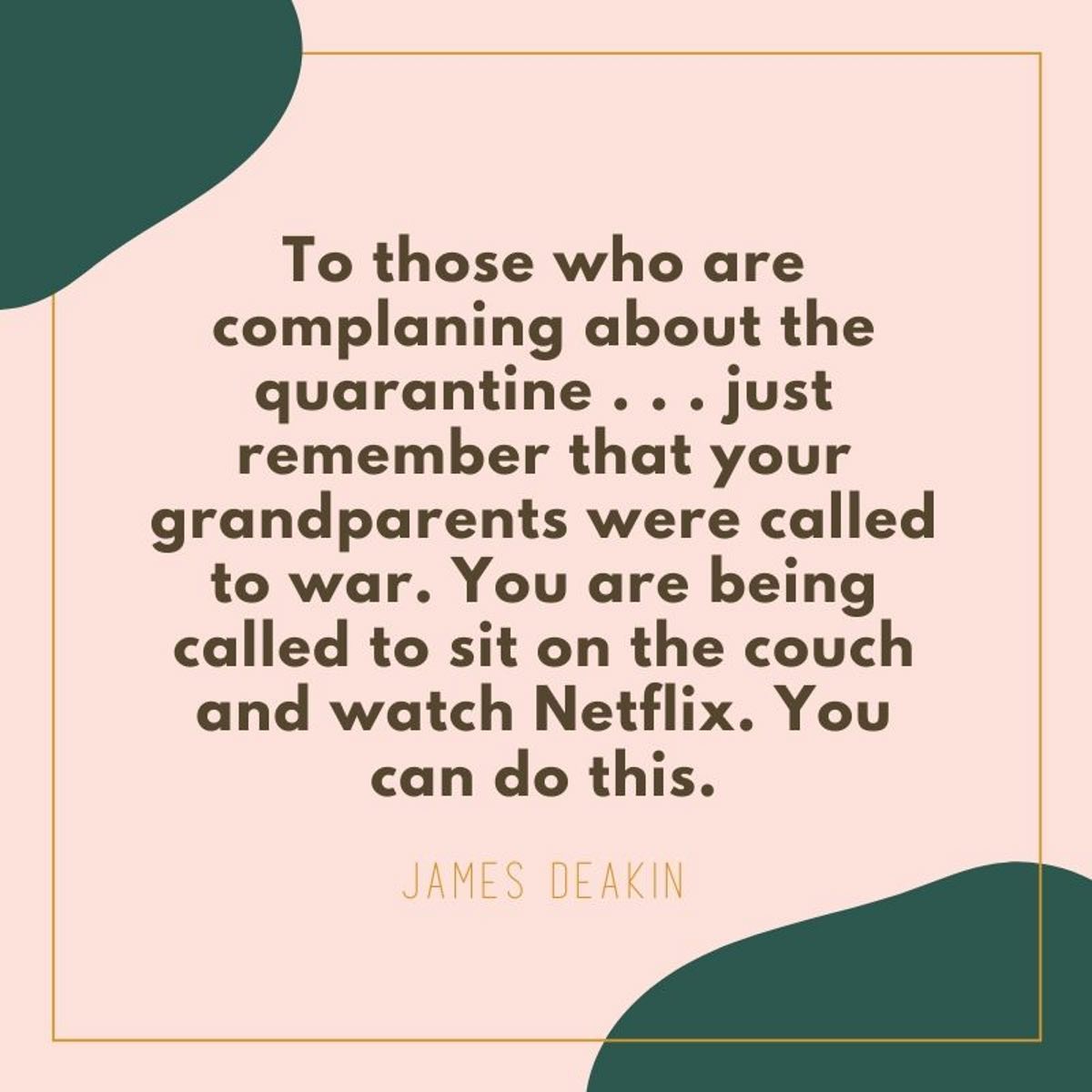What are the rules of social distancing?
“A lot of us might be relatively healthy and think we might be able to withstand the rigors of an infection,” adds Jonathan Kimmelman, director of the Biomedical Ethics Unit at McGill University in Montreal, “but there’s the concern about spreading it to vulnerable individuals, as well as the pressure this outbreak will place on our health care system.” Kimmelman invokes the idea of “social solidarity,” saying “we have an ethical obligation to curtail activities, practice social distancing, and substitute activities with safer alternatives,” like teleconferencing instead of in-person work meetings, or changing a first date from a wine bar to a walk outside.”
COVID-19 Update: A Message From Concerned Physicians
“Who should follow our suggested social isolation measures? EVERYONE. If you do not need to go out for a mission-critical purpose, do not. Again, you WILL be saving the lives of at-risk members of your own family, as well as people you will never have the pleasure of meeting.”
This Mom From Italy Wants Americans to Know This About Covid-19 and Teens
“The only thing that could have saved (or mitigated) this tragedy in Italy is social distancing–a couple of weeks ago. I’m not talking about a high five instead of a handshake, or grandkids not hugging their grandparents. I’m talking about not being in the proximity of another human being who is not your immediate family.”

Social Distancing: This is Not a Snow Day
“Going outside will be important during these strange times, and the weather is improving. Go outside every day if you are able, but stay physically away from people outside your family or roommates. If you have kids, try playing a family soccer game instead of having your kids play with other kids, since sports often mean direct physical contact with others. And though we may wish to visit elders in our community in person, I would not visit nursing homes or other areas where large numbers of the elderly reside, as they are at highest risk for complications and mortality from coronavirus.”
THIS PEDIATRICIAN RECOMMENDS NO CORONAVIRUS BREAK PLAYDATES
“If your family of four has another family of four coming over for a playdate—and that family had another family of four over just yesterday—you’re not now exposed to only four people’s germs, you’re exposed to eight. Worse still, let’s say your kid’s friend’s mom went grocery shopping before coming over and stood in line with twenty people. Now your primary and secondary exposure is to twenty-eight people’s germs—a whole classroom.”

How Much Worse the Coronavirus Could Get, in Charts
“We’ll be honest: We worried that the clean lines in the graphics here risk suggesting a false precision. None of us know what lies ahead. But the wise uncertainty of epidemiologists is preferable to the confident bluster of television blowhards. The one thing we can be confident of is that enormous risks lie ahead — including a huge loss of life — if we don’t take aggressive action.
We have already squandered weeks in which the president scoffed at the coronavirus and tried to talk up the stock markets, but it’s not too late: We can still change the course of this epidemic.”

Strange COVID-19 Bedfellows: Gnawing Anxiety and Under-Reaction
The knots in our stomachs are telling us unambiguously that we need to keep working on precautions and preparedness, that we haven’t done enough. But our heads are ambivalent. We can’t help wondering if we’re overreacting. Our guts are sure. Our brains aren’t, yet. And it only worsens our self-doubt and embarrassment when someone on television says we’re being foolish or hysterical or panicky.
Public health officials need to speak to our pandemic fears – the knots in our stomachs – and also to our self-doubt and embarrassment. We need their help to bear the fear and self-doubt and embarrassment, just as we need their help to bear the pandemic itself.
#StayTheF—Home: A Movement to Stop the COVID-19 Pandemic
“By joining the movement and therefore limiting possibilities for new infections, you are not only protecting yourself, but you are also helping contain and limit the spread for everyone else, especially those who are at higher risk to suffer severe consequences from this virus.”

